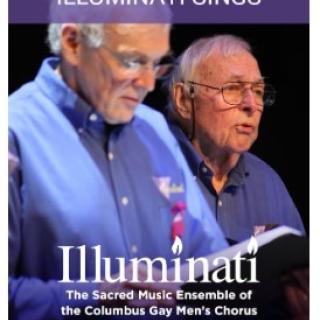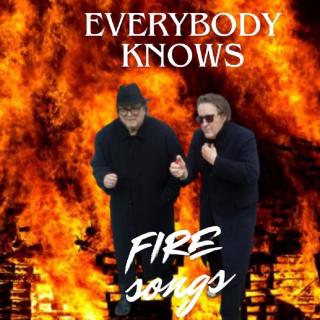Advertisement
Just as I love America but Americans not so much, so it is with music and musicians.
Case in point: went to a Columbus Symphony show Saturday night and the two main dudes never showed up. Neither Tony "Big Fish" Dvorak or Franz "Hot Panz" Hadyn bothered coming to their own show, the ingrates.
Heard they were on Bill Clinton's friend's Lolita Express, partying with babes one-one-hundreth their age. Or maybe they were in rehab? I got in by claiming I was Barb Zuck's personal yoga trainer. That's the kind of night it was.
Thus it was a hastily-called crack pick-up band of chicks'n'dudes string players ripped from the bosoms of a number of Franklin County's lucrative if somnambulistic weekend rest home tour gigs around Franklin County were slapped together by an equally hastily-flown-in 'guest' conductor named Robert "Howdy Doody" Moody.
The word on Boy Howdy? He's been exiled on permanent 'guest' conductor duty around America because nobody really wants to adopt him. Nevertheless, he showed no abandonment issues as he superbly conducted a bunch of strangers. Indeed, at one point he and they were playing with an abandon I'd never before witnessed. More on that later.
All in all, it was the best night of downtown music I've seen since Chuck Berry played on a Columbus street corner for his night-time outdoor show, his backing band made up of a number of Dick's Den regulars whose weekend jail sentences didn't interfere with the weeknight Berry gig.
Opening with Texas-born composer Christopher "Steers & Gyros," Theofanidis's 2007 piece, Muse (originally titled Radiohead), it started out life as a commissioned piece intended to reflect Bach's "Brandenburgs," the old-school composer's failed attempt to land a job because he was a loser.
As far as I'm concerned, Theo's stuff is the best thing to come out of Dallas since Kennedy's hearse. The piece, subtitled I., II., and III., accompanied by the respective sub-subtitle descriptions of "brilliant, fiery;" "with a light touch, ornate;" and "willful, deliberate," was a laminous trilogy streaked with sweet ribbons of melodic lightning descending from longhorn heaven. A ridiculously good piece to open with, Moody Blue!
Then the heavy stuff, or so I thought. Frankly I thought Haydn's Concerto in C Major for Cello and Orchestra was a little boring. The Moderato and Adagio could've used the mutually assured destruction of local jazz guitarist Paul Brown adversarial polarities. Alas, nobody's seen him in years. How-some-ever, guest superstar cellist Mark Kosower, who looked like Heinrich Himmler from where I was sitting, nevertheless played like a cross between Duane Allman, Jimmy Page and any one of the sweet-ass angels in heaven. God, was his fingering nimble and on.
As intermission commenced and the flood of ancients to the lobby could've been called Walkers, Canes and Furs--How Do They Do It, I had a few thoughts on how to rejuvenate the rather staid setting of modern classical performances. More on that in a few.
Round three: Dvorak's Symphony No.7 in D Minor, Op. 70 was da bomb, I mean, the shnizzle that did way more than sizzle. Moody Doody and Gestapo Man on the cello plus the assembled cast of black-clad players too the ol' No. 7 to and through the station, up the mountain and into the Valley of Shadows. I mean, it was everything I ever wanted in a classical music symphony.
Themes whispered their way into being and then in an unostentatious evolution turned on a note into something different, something that drew you in. Dvorak, a Czech and a patriot, had been struggling with the oppressive dominance of Austro-German influences (goddam krauts) and turned to Czech folk dance melodies in this piece, which I recognized right away from my Monday night Appalachian clogging lessons (not!). But OK, if the program says so.
For me, the entire night--which was really pretty terrif to this low-brow orc from the bowels of Cleveland--went straight into the stratosphere of my mental memory scrapbook as director Moody, cellist Kosower and the whole gang of Jets and Sharks armed with finely honed instruments of wood, string, skins and brass, took the last three or four minutes of the night and absolutely levitated with emotion.
Moody was making dramatic swooping and arcing moves with his arms, Cello Man was on fire with his fingers skittering brilliantly, his bow stabbing genius licks out like Gene Simmons' tongue in flames. The rest of the symphony was pouring it on. It was like a firefight of tuxedos and passion the likes of which I simply can't remember seeing over the years. When it climaxed, crescendo'ed and blew itself out, I felt drained and exhilarated, reborn and relaxed. Like fantastic sex.
And then the night ended after a small but fantastically delightful piece by Kosower who earned his place in the big leagues. He and Moody saved the night. Who needs them Euro-weenie-types who can't even show up at their own tribute night--why, because we're hicks?
In the meantime, a few suggestions for rejuvenating classical music's fan base:
--Get rid of the drab cadaver lighting. Instead, encase the entire stage in a plasma light not unlike a gigantic mood ring. As the musicians play, the lighting membranes will do their thing, colorfully reflecting the composer's intentions. Acid-heads will love it as well as other moneyed dolts.
--Put the players on risers. They look like a gang of tuxedo-wearing stiffs. Have 'em dress like Jets and Sharks in leathers and hoodies. No male should wear a belt, all pants should be mid-cheek level. Get hip, mummies!
--Sex--and lots of it. How? Have the city's best pole-dancers playing string-less violins so that they're just silently bowing wood. We could actually probably charge junior high school boys more than we charge the antiques who show up in droves nowadays.
--Every concert should start off with The National Anthem but only if performed Hendrix style! In other words, there is much, much too much harmony in classical music. WE NEED NOISE AND WE NEED IT NOW!
--There needs to be some kind of cage competition between, say, tuba players and the like. Use your imagination.
The reason I want to attract the masses is, given the audience one regularly sees at our fine symphony's shows, in a coupla years they're going to be playing to mostly empty seats. And we shouldn't hire guys who don't even show up.



